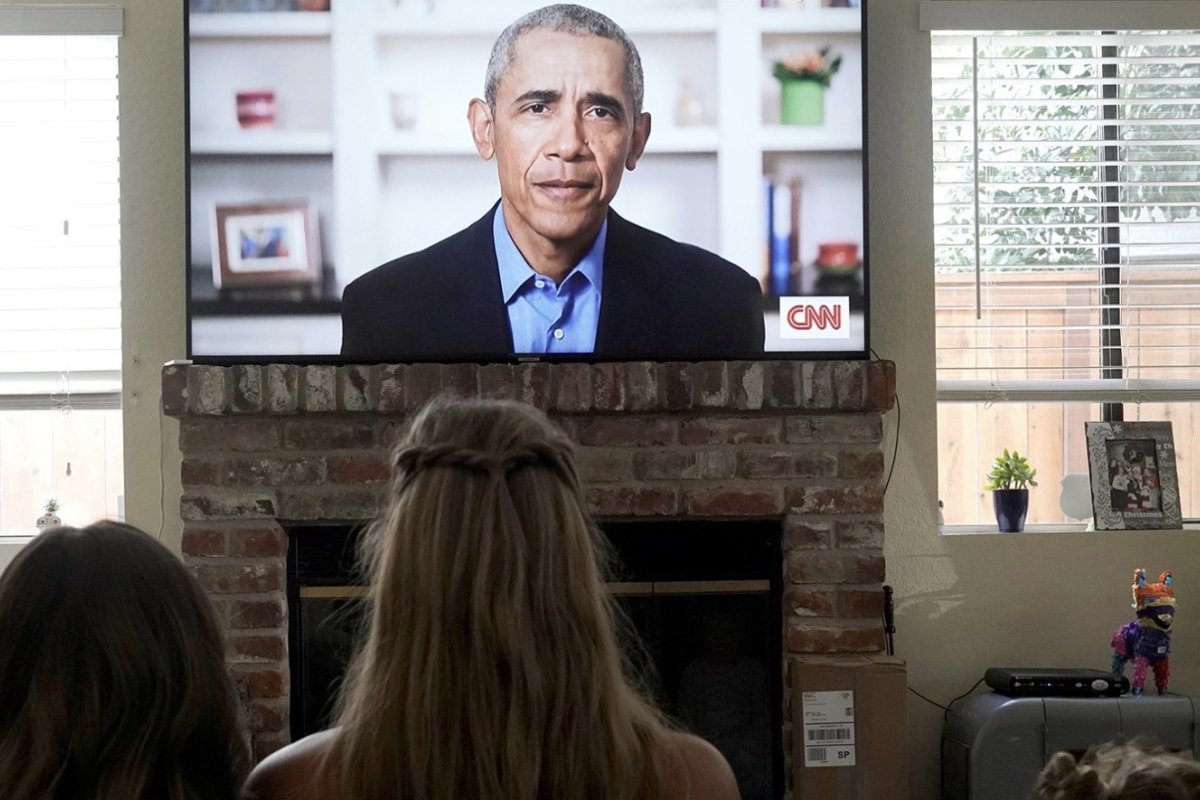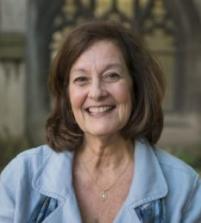
Commencement 2020: Let the Adulting Begin
What do this year's graduation ceremonies, hallmark rituals of American civil religion, reveal about the state of our collective soul?
Quarantined Americans eagerly awaited the coming of the month of May, buoyed by predictions that near the beginning of the month our COVID curve might flatten, the rates of contagion would decline, and all manners of commerce could commence once again. In many communities around our country those promises proved too ambitious; the yearned-for invitations to venture forth for family reunions, summer festivals, and regular worship gatherings have been as slow to arrive as USPS deliveries themselves. Still, the month of May has offered some harbingers of life and hope that even a pandemic cannot quash: the invincible green surge of nature’s spring all around us, and the equally abundant proliferation of annual commencement festivities.
Commencement ceremonies and speeches have been standard features of American civic religion since the founding of our universities: Harvard’s first commencement celebrating the accomplishments of all nine of its graduates was held in 1642. Even when the numbers of graduates were quite small the ceremonies themselves were notoriously long, as each student was expected to demonstrate the rhetorical skills that were the measure of a successful education, and to do so in Latin, Hebrew, or Greek. The focus of those early events was squarely on the students and their acquisition of knowledge, but not for the purpose of celebrating their individual achievements. Rather, these early commencements celebrated the act of commencing itself—the students’ “beginning, going forward,” to take on the roles and responsibilities of adulthood, citizenship, and generativity that would benefit the entire community. And so, notes Albert Matthews in his study of Harvard commencements from 1642-1916, “for nearly two centuries [commencement] was the great gala day of the colony, the province, the state…” so that “not merely the alumni but the populace” would flock to attend.
As the study of rhetoric decreased in currency and the numbers of graduates swelled, demonstrations of budding competence no longer took center stage in these proceedings. For a time, while the culture’s trust in the power of education remained strong, commencement addresses were offered by university faculty as “disputations” that displayed their erudition. As a growing nation invested more authority in positions of formal of leadership, a rising political class of local and national figures commanded commencement podiums. More recently, learned disputation and displays of statesmanship have given way to rising cynicism about expertise and a cultural preference for ready emotional gratification. Celebrity commencement speakers entertain family and friends who are willing to endure lengthy ceremonies for the sole purpose of capturing that split second when their own loved one is singled out for recognition, a quick photo, and a smattering of applause.
As civic rituals, our commencement ceremonies communicate both the demands of a particular epoch (for enlightenment, nation-building, acknowledgment of one’s own) and the values and roles we are commending to our graduates (critical reason, political prowess, individual achievement). The power of ritual lies precisely in this uncanny capacity for reliable-yet-flexible enactments that calibrate the sensibilities of the community with the significance of a moment. Effective rituals hold together the anxiety and complexity of human experience so that we might gain some perspective on ourselves, and some purpose or direction for our time. This season’s commencement ceremonies do not disappoint; despite the pandemic’s best efforts to interrupt the commencements of over several million high school and college seniors in the U.S., this spring’s ceremonies bear witness to ritual’s powers of persistence, pertinence, and persuasion.
This month, small towns have hosted commencements at drive-in theaters, on the big screen with families looking on from their cars. Communities have organized socially-distanced parades, while the students themselves have created video tributes, photo montages, and synchronous online concerts. There have been commencement speakers of all ages and stations—graduates, celebrities, athletes, activists, and former presidents—all live-streamed, recorded, published in sound bites and sometimes even in full text, by national media hungry for a good word. So, what have we learned about the imperatives of our current moment and the state of our collective soul, as we gather in the Zoomisphere or tune into YouTube to cheer the class of 2020?
While there is much to mourn about our inability to gather on campus lawns and high school gymnasiums, indulging in long, leisurely commencement processions and smart, entertaining speeches, the internet abhors wasted minutes and our eyes have limited tolerance for screen time. “Graduate Together 2020,” the national high school commencement celebration live-streamed on May 16, was hosted by LeBron James, featured a commencement address by Barack Obama, and included several musical performances by student choirs and celebrity artists with cameo appearances by dozens of others. The whole program clocked in at one hour exactly, and still managed to create a powerful sense of community and collaboration, urgency and purpose without neglecting our very fresh experiences of grief, loss, disillusionment, and uncertainty.
Obama’s commencement address was eight minutes long, but still addressed the gravity of the season and the import of the occasion while giving graduates clear instruction for the way ahead. “Don’t be afraid (America’s seen tough times before)… do the right thing (Doing what feels good, what’s convenient, what’s easy—that’s how little kids think. Unfortunately, a lot of so-called grown-ups, including some with fancy titles and important jobs, still think that way—which is why things are so screwed up)… and build community (Nobody does big things by themselves).” Equally economical and just as effective was the singular challenge of athlete LeBron James, “I know the last thing you want to hear right now is ‘stay home.’ That’s not my message to you. My message is, stay close to home. Maybe not physically but in every other way possible… be the first generation to embrace a new responsibility, a responsibility to rebuild your community.” There were echoes of those very first commencements in this contemporary one: rather than polite affirmation of individual accomplishment, this celebration claimed the gifts of the many for the good of the whole.
There was still plenty of entertainment on offer in “Graduate Together”—lighthearted references to the inanities of life under quarantine and production values that far exceeded those of the average commencement ceremony. Nevertheless, the rhetoric in this celebration, in tune with many other commencement speeches over the last few weeks, was significantly chastened by the devastation of a global pandemic that has cost 90,000 lives and millions of jobs in our country alone. Familiar twenty-first-century commencement tropes were noticeably absent—graduates were not encouraged to live life to the fullest, follow their dreams, become their own person, or savor the moment. Born in the aftermath of 9/11, these students have come of age insisting that black lives matter, protesting the loss of youthful lives to gun violence in school shootings and on city streets, and confronting the inevitable reality of a degraded global climate, forever changed. There were far fewer colorful stories regaling youthful excesses and misadventures, and many more quiet examples of this generation’s realism, courage, and sacrifice. Athlete Megan Rapinoe eschewed typical commencement sentimentality as well, tapping this generation’s moral seriousness in her remarks: “We’re separated in ways we’ve never experienced and facing a world that will never be the same. So, I’m not going to ask you to come together. I’m going to ask you to demand better together.”
Atlantic writer Caitlyn Flanagan sums up the import of this year’s commencement in the title of her open address to the class of 2020: “You Thought You Were Free, But History Found You.” In a few short months, a virus of historic proportions has pulled back the veil to reveal the liabilities of some of our most cherished assumptions—that expertise has all the answers, that powerful leaders can protect us, that we are free to choose our own adventure and find our own bliss—reminding us that full humanity, mature humanity, demands that we grow up, face reality, and own our responsibility to, for, and alongside the entire human community. Last weekend, President Obama told the graduates of the historically black colleges and universities that “if the world’s going to get better, it’s going to be up to you.” While that “you” was directed at the class of 2020, many of whom have sensed the urgency of their hour, felt the claim of history, and already shown themselves to be capable moral agents, the responsibility is not solely theirs. Obama’s invitation, like all good commencement speeches, was meant to be overheard and taken up by everyone within earshot. Not only do our communities need the class of 2020 to begin to take up their roles and responsibilities as adults, the world needs all the rest of us to commence as well. We have all been found out, even as our sons and daughters have been found, by history. Let the adulting begin.
Image: Phoebe Seip (center), a graduating senior from Torrey Pines High School in San Diego, California, watches former President Barack Obama deliver a virtual commencement address as part of "Graduate Together 2020" on May 16, 2020. (Photo Credit: Bing Guan)
Sightings is edited by Joel Brown, a PhD Candidate in Religions in the Americas at the Divinity School. Sign up here to receive Sightings via email. You can also follow us on Facebook and Twitter. The views and opinions expressed in this article are those of the author and do not necessarily reflect the position of the Marty Center or its editor.


